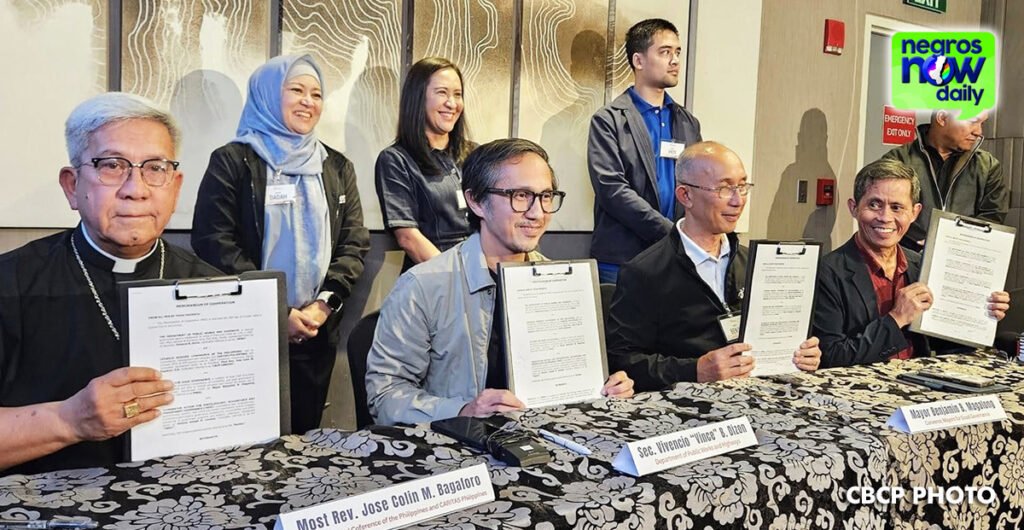The bishops’ social action arm has joined a broad alliance to monitor government infrastructure projects and help curb corruption nationwide.
Caritas Philippines has partnered with the Department of Public Works and Highways, the Mayors for Good Governance, and several civil society organizations to promote transparency and accountability in public works, the Catholic Bishops Conference of the Philippines (CBCP) posted Oct. 25.
The agreement, sealed through a memorandum of cooperation, aims to expand the government’s ongoing probe into alleged irregular flood control and infrastructure projects across the country.

The partnership will allow parishes and community groups to help check reports of ghost or substandard projects and monitor the progress of DPWH works in their areas.
Bishop Jose Colin Bagaforo, president of the national Caritas, said the Church will mobilize dioceses, through their Social Action Centers, to help track government projects in local communities.
“Through these ministries, we will assist in monitoring ongoing projects, especially those that may be ghost or substandard,” Bagaforo said during the signing event Friday.
He said Caritas will report findings to the joint monitoring group and organize parish volunteers to visit sites and observe how DPWH projects are carried out.
“We are ready to offer our manpower. Our parishes and local churches will rally volunteers to go around and check the DPWH projects,” Bagaforo stressed.
The bishop added that the Church’s role is not only to expose wrongdoing but also to offer moral guidance to officials and project implementers.
“Beyond criticism, we hope to give moral guidance to local officials and project implementers—especially those involved in anomalies—so they may be enlightened,” he said.
The memorandum outlines a plan to create a reporting system for irregular projects, promote citizen participation, and strengthen good governance in public infrastructure.
It also requires local monitoring teams to document findings, submit verified reports, and ensure shared data is used responsibly.
The DPWH pledged to act quickly on confirmed reports of irregularities and uphold transparency under existing laws on accountability and anti-corruption. ||



